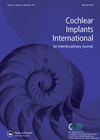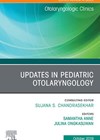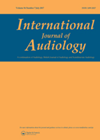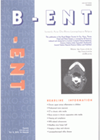
Journal Reviews
How to train adults with single-sided deafness and cochlear implants
Cochlear implantation (CI) in patients with single-sided deafness (SSD) has been carried out in Perth, Australia from 2008. It poses challenges to clinicians and patients who are trying to tune in the poorer ear while still having a normally hearing...
Understanding osseointegration for the otologist
Bone conduction implants are hearing devices that require osseointegration to create a stable and reliable interface between the hearing device and the skull to deliver sound to the cochlea. This article reviews the physiology of osseointegration, factors that may lead...
Single sided deafness and cochlear implants
Cochlear implants (CI) can restore hearing in the profoundly deaf ear. Risk/ benefit and cost considerations dictate strict criteria that must be met for patients to be eligible. People with single-sided deafness are not eligible to receive a cochlear implant...
Predicting speech recognition in adults with cochlear implants
This was a combined prospective and retrospective study from Belgium that looked at factors influencing speech recognition scores in quiet conditions (retrospectively) and speech reception threshold levels (SRT) in fixed noise conditions (prospectively) after cochlear implantation in postlingually deaf adults....
Review: Cochlear Implantation in SSD?
Contra lateral routing of signals (CROS) using hearing aids and bone conduction devices has been the conventionally accepted modality for the treatment of single sided hearing impairment. The CROS hearing aid has been found to improve speech understanding in noise,...










